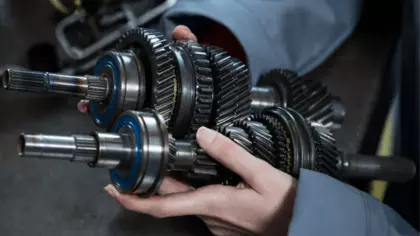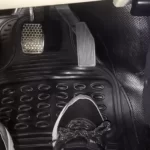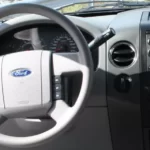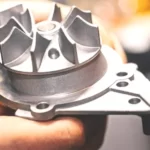Why Does My Car Grind Going Into Reverse And Second?
Are you noticing anything strange when shifting gears into reverse? Wondering why does my car grind going into reverse and second? You are not alone.
Many people notice this unusual behavior and even hear the grinding gear noise. but why? The possible reason is the partially disengaged gearbox from the engine that forces the gear to rotate. There can also be plenty of other sources of this error, including the clutch system, torque converter, gear system, and more.
Read on to briefly learn about the reason for causing grinding gears and troubleshooting this most common problem.
Why Does My Car Grind Going Into Reverse And Second?

Gear grinding mainly indicates a faulty transmission or gearbox. If you don’t disengage the gearbox from the engine, the gear can keep rotating and grind into reverse.
In this case, shifting into a forward gear momentarily before shifting quickly into reverse can help avoid the problem. However, a faulty gearbox isn’t the only reason for grinding gears. Following are some key reasons behind this error:
Clutch System
A clutch system can be the source of the problem. The separate clutch system of the CVT and automatic transmission works automatically, while the manual transmission depends on the operator. It needs to press the clutch pedal during shifting. If the clutch components get damaged or cause assembly issues, it can cause grinding gears during shifting.
Torque Converter
During acceleration or deceleration, the automatic transmission utilizes a planetary gear and torque converter for automatic shifting. A faulty torque converter can produce grinding noises while sifting the car between forward gears.
So if you physically feel a grinding noise while shifting into reverse, check the torque converter to prevent gear grinding.
Low Transmission Fluid
Your car can also go into reverse and second if the transmission system doesn’t get the required lubrication from the transmission fluid. It can happen if you don’t pour enough fluid, or if the metal becomes old or corroded. Hence, you should change transmission fluid whenever required to avoid damaging the internal transmission.
Gear System
Chances are there can be something that gets damaged between gears and sensitive parts and causes shifting issues or grinding noise. And the error becomes most obvious when changing between two gears. To find out the source of this issue, you may have to inspect the whole transmission in detail.
During the internal inspection, you may also discover other damaged parts that are causing transmission issues. In this case, you can ask for help from an expert to know the exact problem and fix the transmission properly.
If the problem is serious, you may go through the transmission’s full custom rebuild, as it is better to replace damaged components than fix them.https://madisonrising.com/subaru-transmission-problems-symptoms/
Poor Driving Habits
Sometimes your car may go into reverse and second due to your fault. More specifically, driving the vehicle in manual transmission during changing gears can also cause grind gears. It’s not concerning if you do so occasionally. But doing so regularly or pushing a vehicle with
Rough shifting, crazy driving, or hauling heavy loads can eventually cause bad things. And over time, the transmission and clutch can get damaged.
Because of those same reasons, you can even hear a grinding noise and feel resistance when changing gears. No matter if your vehicle has a CVT, automatic, or manual transmission, be careful if the vehicle doesn’t allow you to shift gears smoothly or makes strange noises.
Troubleshooting of Grinding Gear into Reverse and Second

If you have skill in automobile, you can try these tricks at a home garage. Otherwise, it’s better to hire professional mechanics.
Pump the Clutch
If your car grinds going into reverse and second, pump the clutch pedal a couple of times and try to shift again. If it goes into reverse silently, the problem may occur in the slave cylinder, master cylinder, or airline. But if it still produces noise, possibly the synchromesh gets damaged, which trains the gears in the transmission.
Put the Transmission in Reverse
Keeping the engine off, try to shifts the transmission into reverse. If the transmission shifts properly, there might be a problem with the clutch hydraulics. The reverse gear typically doesn’t have synchro, and the transmission keeps rotating if the clutch doesn’t release completely.
As a result, the car grinds into reverse and second. However, forward gears have synchros, which help avoid hydraulic clutch issues.
Shift Transmission with a Running Engine
Try putting the transmission in first gear while keeping the engine running. You should not hear any grinding. Then shift the transmission into neutral and hold it for 10 seconds without releasing the clutch pedal. Then shift the transmission into reverse.
If the transmission goes into reverse without causing the grinding, there is nothing to worry about. But if the clutch starts dragging, it could be the warped clutch disk or damaged pilot bearing causing the problem.
However, transmission grinding isn’t unusual if you directly change transmission from neutral to reverse. The reason is that the reverse gear doesn’t have synchros to avoid grinding, unlike forward gears. Many drivers shift the transmission into forward gear before shifting it into reverse to prevent grinding noise.
FAQs
1. Why does the vehicle grind during shifting into second gear?
The vehicle can grind during shifting into second gear due to the worn-out blocker ring. It is usually made of brass and can get damaged over time by applying sloppy changing techniques.
2. Why does the gear produce a grinding noise while shifting?
The gear can produce a grinding noise during shifting due to the friction between gears. The reasons for causing friction are worn transmission, lack of transmission fluid, a dragging clutch, and maladjusted binding.
3. How to determine if gears are grinding?
Hearing a grinding noise during shifting while the car is in neutral is a common indication of grinding. Grinding can also occur if the transmission can’t shift fluid conveniently.
Final Words
In the end, you get some basic reasons why does my car grind going into reverse and second as well as making a grinding noise. In addition, those troubleshooting tips will let you identify the source of the issue and fix it.
However, transmissions and their sensitive components are quite complex to check and fix. So you should only pay attention while shifting the transmission and take the car to the hospital if you notice any unusual action or noise.






